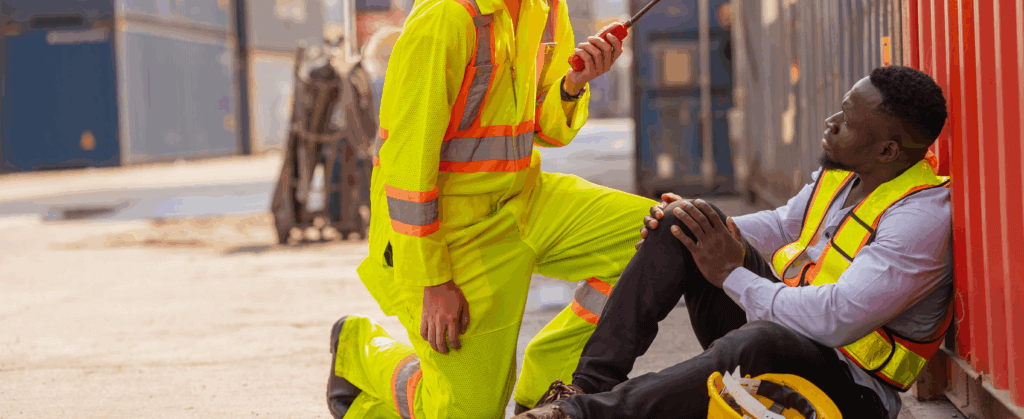California’s Trusted Legal Advocate for Harbor, Port, & Maritime Injuries
Harbor and port injuries are among the most complex and high-stakes cases in personal injury law. From dock workers and longshoremen to commercial fishermen and cruise ship passengers, these accidents can lead to catastrophic harm or wrongful death. At Hillstone Law, we specialize in holding negligent entities accountable under maritime law, including claims under the Longshore and Harbor Workers’ Compensation Act. We operate on a contingency-fee basis so you pay nothing unless we win.

Why Harbor & Port Injury Cases Are Uniquely Complex
California ports, such as Los Angeles, Long Beach, Oakland, and San Francisco, support massive trade volumes and thousands of workers. Accident risks include:
- Heavy equipment operations with cranes, forklifts, and containers
- Falling overboard or drowning incidents
- Noise-related and heavy load injuries
- Toxic chemical exposures, electrocutions, burns, and amputations
- Collisions involving cargo vehicles or shipboard machinery
Hillstone Law navigates the overlap of maritime regulations, federal statutes, workplace injury claims, and third-party liability to ensure full legal coverage.
What Are the Typical Injuries?
Injured mariners and dockworkers may suffer:
- Spine, back, limb, or crush injuries
- Chemical burns or toxic exposures
- Electrocution and electric shock
- Amputations, lacerations, and fractures
- Traumatic injuries from falls or vehicle collisions
- Psychological harm including PTSD and emotional trauma from injuries or witnessing accidents
Many others also face slip-and-fall or boating accidents while working offshore or recreating at port areas.
Compensation & Recovery Options in California
Victims may recover:
Economic Damages
- Medical care, surgeries, rehabilitation, adaptive devices
- Lost wages, diminished earning capacity, vocational training
- Long-term care needs and expenses
Non-Economic Damages
- Pain, suffering, emotional distress
- Loss of functional independence or recreational enjoyment
Wrongful Death Claims
Surviving family members can pursue compensation for economic loss, funeral costs, and emotional damages.
Longshore & Harbor Workers’ Compensation
Federal protections address workplace injuries, but many workers also file third-party claims to recover full losses beyond compensation benefits.
Identifying Liable Parties
Hillstone Law thoroughly investigates to identify negligence, including:
- Harbor employers, port operators, or shipping companies
- Equipment operators (crane, forklift, and machinery) and contractors
- Manufacturers responsible for defective tools, safety gear, or vehicles
- Property or equipment maintenance providers
- Cruise lines, vessel owners, or offshore platforms when passengers or recreational users are injured
Our team works with maritime accident experts, safety engineers, medical professionals, and economic analysts to build your strongest case.
U.S. Coast Guard Marine Casualty Reports
Why Partner with Hillstone Law
- Statewide California representation specializing in maritime and port injury law
- Access to technical experts: vessel inspectors, safety engineers, medical specialists
- Dedicated to evidence-driven strategy and aggressive negotiation, or trial if needed
- Free initial consultation and no legal fees unless you win compensation
- Proven record of advocating for dockworkers, longshoremen, cruise passengers, offshore workers, and port visitors
Important Deadlines & Evidence Preservation
Most maritime and personal injury claims in California must be filed within two years of the injury date. Exceptions include:
- Discovery rule, applicable if symptoms or complications appear later
- Minor victims, where the statute may be tolled until they turn 18
Prompt legal action is crucial to preserve accident reports, employment logs, vessel records, maintenance documentation, and injury-site photos before they are lost or altered.
What to Do After a Harbor or Port Accident
- Obtain immediate medical care, even if your injuries seem minor.
- Preserve all physical evidence, including safety equipment or personal gear involved.
- Document the scene, take photos, note weather or water conditions, record equipment identifiers.
- Collect witnesses’ names, job titles, and contact details when possible.
- Avoid signing anything or speaking to representatives without legal guidance.
- Contact Hillstone Law promptly, we act fast to secure evidence and support your claim.
Summary – Harbor & Port Injuries at a Glance
| Issue | Key Details |
|---|---|
| Common Causes | Heavy machinery, falls, drowning, chemical exposure, electrocution |
| Typical Injuries | Spinal damage, burns, amputations, fractures, emotional trauma |
| Legal Theories | Negligence, premises liability, product liability, Longshore Act |
| Compensation | Medical costs, lost income, future care, pain & suffering, punitive damages |
| Why Hillstone Law | Maritime expertise, evidence-first approach, contingency fee model |
| Filing Deadline (CA) | Generally 2 years (with exceptions for minors or late discovery) |
Frequently Asked Questions
Do I have to pay anything upfront?
No. We work on contingency, you pay nothing unless we win your case.
Do port injury cases typically settle or go to court?
Many settle, but we prepare every case for trial to ensure fairness if insurers or employers offer inadequate compensation.
Can I still pursue a claim if I’m receiving workers’ compensation benefits?
Yes. Additional third-party claims may be filed for full compensation beyond benefit limits.
Who can file a claim under the Longshore Act?
Included are longshoremen, stevedores, shipyard workers, offshore platform staff, and vessel cleaners, even cruise ship employees and recreational visitors in some cases.
Contact Hillstone Law Today
Injuries at California’s ports or waterways can lead to complex legal situations. If you or a loved one were hurt while working or visiting a harbor, port, vessel, or marine facility, don’t delay. Contact Hillstone Law today for a free, no-obligation consultation. We’ll help protect your rights, preserve critical evidence, and pursue the maximum compensation you deserve.

